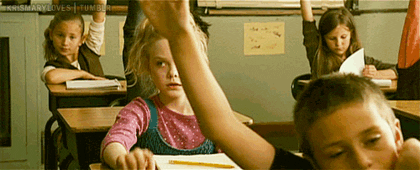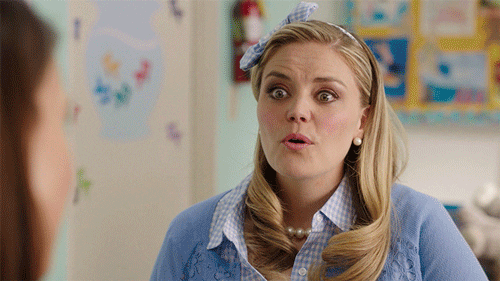It takes a lot to leave me speechless with anger, but sometimes the internet does just that.
Online Facebook groups can be a great place to share victories and frustrations with the people who know exactly what we are going through. There is power in having all of that teacher-wisdom in one place. If you ask for guidance, you’ll easily receive 20 ideas to a problem you thought had no solution.
Occasionally, however, a comment will give me pause. I might not agree with it, but I try my best to think about where the author is coming from. However, there’s one comment I see time and time again that I just can’t take: It’s when teachers blame a student because of their “lack of moral character.”
It’s an easy but wrong response.

I can’t remember what the offense was when I first saw someone post this, but I think it fell somewhere between stealing another student’s eraser and calling someone a name. Even though what the student did was clearly wrong, the behavior was within the scope of what a kid might do on a typical day in a third-grade classroom.
I scrolled through the responses and saw many strategies that I might have tried myself. Then I reached a comment that said simply, “Sounds like a lack of moral character.”
My first instinct was to yell at my computer, but no words came. I was angry that a teacher could believe this about a student. I didn’t want anyone else in the group, especially the new teachers who looked to these groups for advice, to think this was acceptable.
Blaming a student’s behavior on a “lack of moral character” is not just an easy response; it’s a dangerous way of thinking about the children in our care, and we have to stop.
Putting the blame on character never helps your students.

According to one of my favorite writing teachers, unhelpful criticism is almost always emotional and vague.
“I don’t like it.”
“Your ending is bad and you need to fix it.”
While positive, “good job!” is not very useful as far as criticism goes. Likewise, blaming moral character isn’t a constructive solution; it’s a label. It doesn’t further the conversation about how to best support a child. Instead, it stops the discussion.
As teachers, we sometimes have to decide if a behavior is willful or the product of a skill deficit. And sometimes, just to keep things interesting, a student might behave in a way that seems willful to get out of doing a difficult task she’s not sure that she can do.
I once had a second grader who would run off and hide every time I went to pull her for math support at the end of recess. This behavior seemed willful, but it was borne of self-protection. She was being asked to do something that felt impossible and made her so uncomfortable that she went into flight mode. In her mind, she had no choice but to run.
I could have thought of my student’s behavior as a “lack of moral character,” but it would not have served her. If I had given up on her the first time she hid, she would have continued hiding from teachers—and from math. Instead, we discussed why she felt math was so difficult. I provided incentives for her not to hide. With time, she grew more confident in her math abilities and stopped running.
We have to stop being unfair and damaging to students.

Blaming moral character isn’t just easy and unhelpful. It’s unfair and damaging to our students. As children, their understanding of what is right and wrong, not to mention appropriate and inappropriate, is still forming every day.
Ask a student why they took a ball away from their friend or splashed water all over the floor. Their actions probably made sense to them at the time—they wanted the ball or they wanted to see what would happen if they splashed the water. Morality never enters into their thought process.
Adults are the ones who assign moral value when they describe students as “lazy,” “disrespectful,” or “lacking in moral character.” When teachers label students in such judgmental and odious terms, the student is the one who suffers.
Even if these terms are never said directly to a child or her family, this kind of judgment from a teacher has a tendency to pervade every school day and make it impossible to build the trust and respect needed to truly educate a student. Instead of flourishing from a teacher’s care, the child is written off.
I admit, there are times when students do some genuinely frustrating things that push all the buttons. As teachers, the adults whose very job it is to teach and guide students, we have an obligation find ways to see the developing child underneath all that frustrating behavior. We have a duty to never let “lack of moral character” and other judgments keep us from supporting our students.

